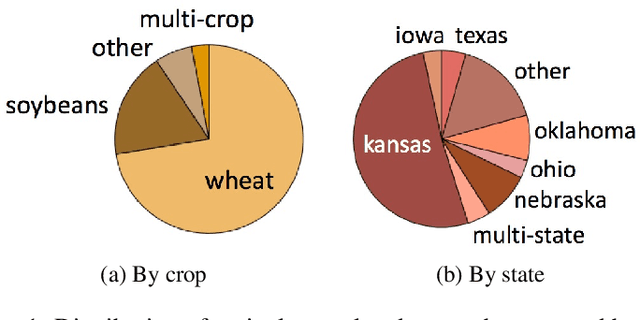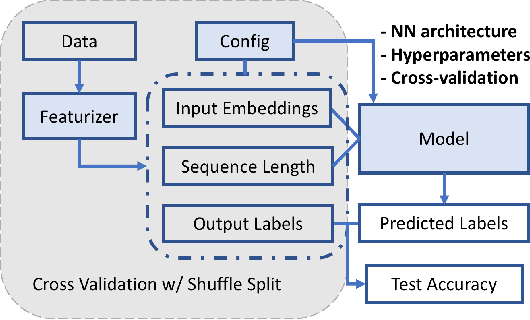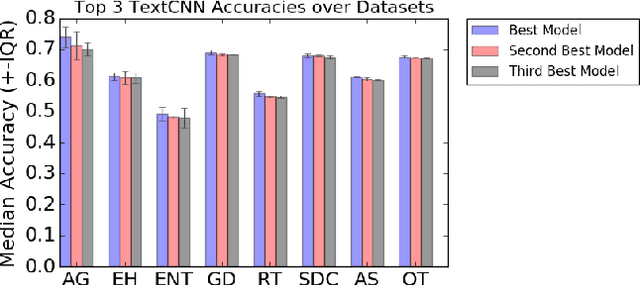Darren Hau
Predicting US State-Level Agricultural Sentiment as a Measure of Food Security with Tweets from Farming Communities
Feb 13, 2019



Abstract:The ability to obtain accurate food security metrics in developing areas where relevant data can be sparse is critically important for policy makers tasked with implementing food aid programs. As a result, a great deal of work has been dedicated to predicting important food security metrics such as annual crop yields using a variety of methods including simulation, remote sensing, weather models, and human expert input. As a complement to existing techniques in crop yield prediction, this work develops neural network models for predicting the sentiment of Twitter feeds from farming communities. Specifically, we investigate the potential of both direct learning on a small dataset of agriculturally-relevant tweets and transfer learning from larger, well-labeled sentiment datasets from other domains (e.g.~politics) to accurately predict agricultural sentiment, which we hope would ultimately serve as a useful crop yield predictor. We find that direct learning from small, relevant datasets outperforms transfer learning from large, fully-labeled datasets, that convolutional neural networks broadly outperform recurrent neural networks on Twitter sentiment classification, and that these models perform substantially less well on ternary sentiment problems characteristic of practical settings than on binary problems often found in the literature.
Predicting Food Security Outcomes Using Convolutional Neural Networks (CNNs) for Satellite Tasking
Feb 13, 2019



Abstract:Obtaining reliable data describing local Food Security Metrics (FSM) at a granularity that is informative to policy-makers requires expensive and logistically difficult surveys, particularly in the developing world. We train a CNN on publicly available satellite data describing land cover classification and use both transfer learning and direct training to build a model for FSM prediction purely from satellite imagery data. We then propose efficient tasking algorithms for high resolution satellite assets via transfer learning, Markovian search algorithms, and Bayesian networks.
 Add to Chrome
Add to Chrome Add to Firefox
Add to Firefox Add to Edge
Add to Edge